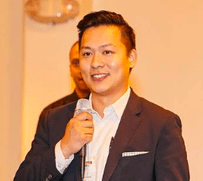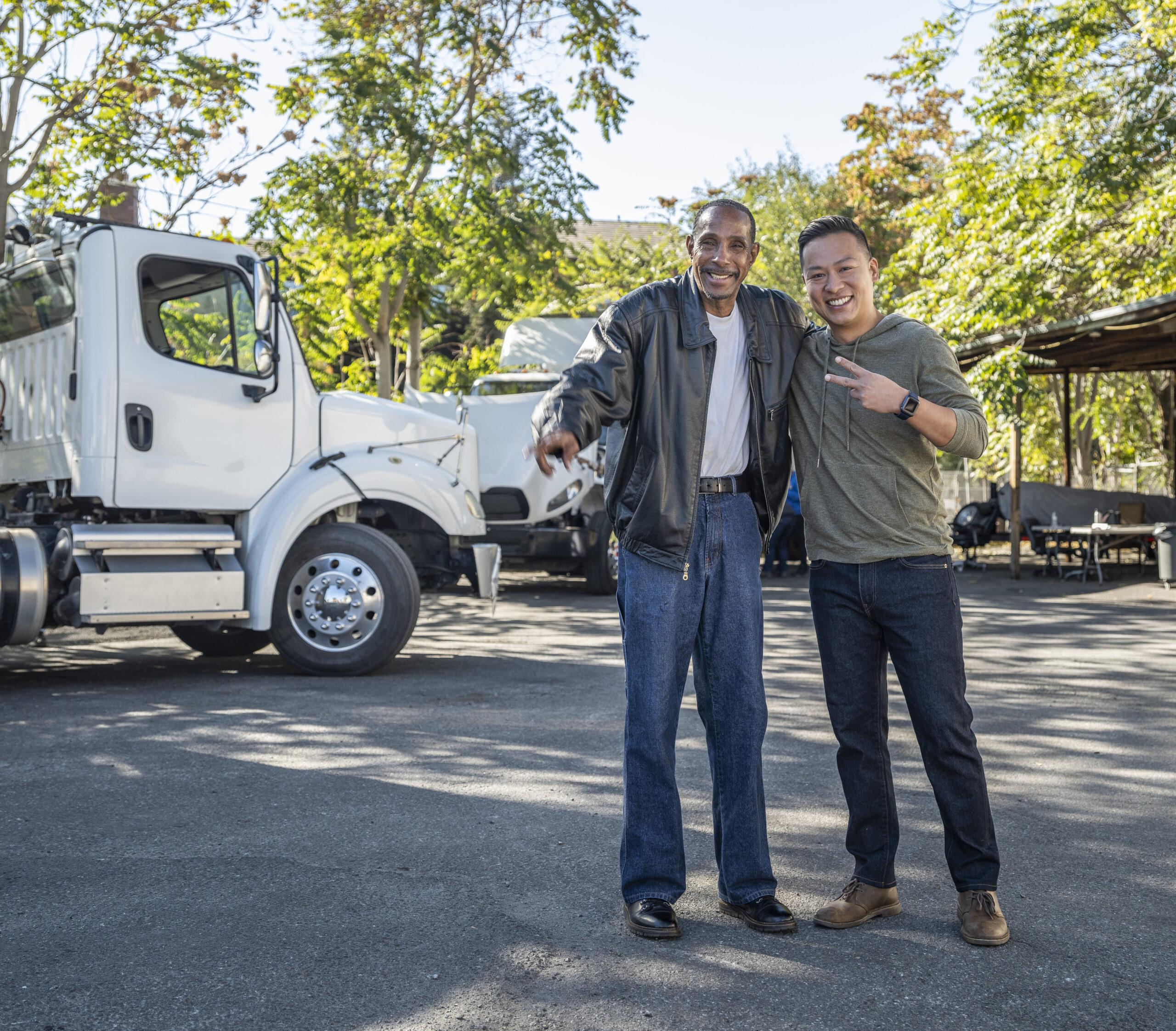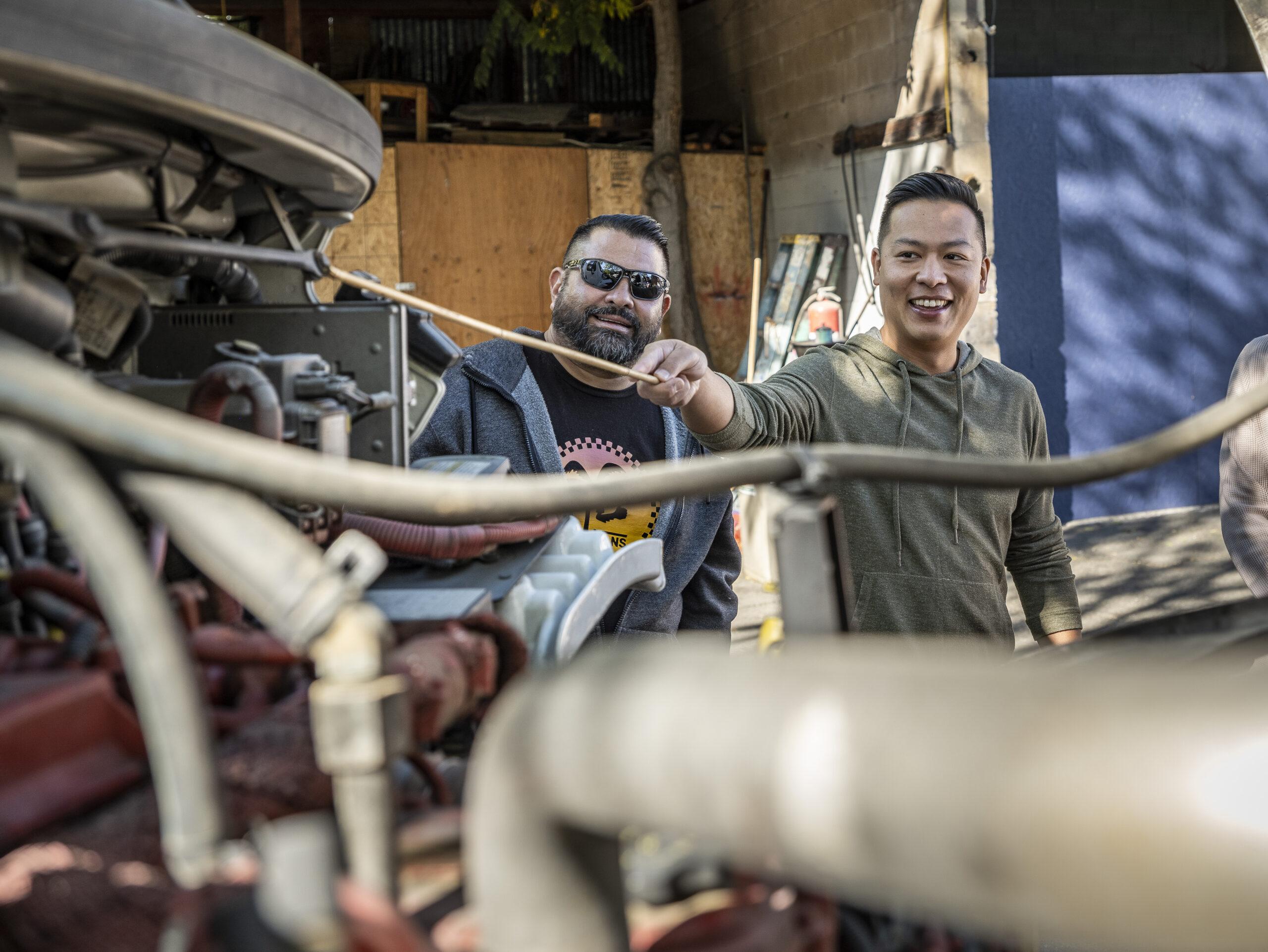

Q&A with Jason Wang, Founder & CEO of FreeWorld
This Q&A is with Jason Wang, the CEO and Founder of one of our earliest grantees, FreeWorld. FreeWorld is a “tech-enabled nonprofit that aims to end generational poverty and recidivism by accelerating economic mobility for returning citizens.” Schmidt Futures was one of the first investors in FreeWorld through its Entrepreneurs-In-Residence (EIR) program, which operated from 2020 to 2021. The program provided talented social entrepreneurs with the opportunity to incubate new ideas for public benefit and support efforts with the potential to change entire sectors at scale.
Mike Belinsky (Director at Schmidt Futures): Jason, let’s start with the basics. Tell us about yourself and why you created FreeWorld.

I was born to immigrant parents who came to the U.S. without friends or relatives, barely speaking English, and working low-wage jobs. We were extremely poor and lived in neighborhoods where police sirens and gunshots were background noise. Racial slurs greeted me at school, and at home I was often the target of my father’s violent temper.
At 13, without a supportive home environment and no one to turn to at school, a gang leader became my father figure, a street gang the family I didn’t have at home. They loved me, respected me, and taught me what they knew: robbery. I would end up arrested at 15 for a first degree felony, Aggravated Robbery, and sentenced to a maximum-security juvenile prison for 12 years.
While incarcerated, I met hundreds of kids who had similar backgrounds to me. It was heartbreaking to see them get released, only to come right back or be killed on the streets. I began to wonder if there was a better way. That became the birth of FreeWorld, which is prison slang for the world outside of prison.
Today, FreeWorld is a tech nonprofit that trains and places people with criminal histories into living wage careers. Today, that means last mile truck driving careers [Note: “Last mile” truck drivers deliver goods from distribution centers to points of sales such as local grocery stores.]. In the future, we will expand the organization to multiple vocational programs.
Our program and education is done in a hybrid approach. We have an online platform that onboards and trains returning citizens on the basics of truck driving. After the online component is completed, we leverage our partnerships with 160+ trucking schools nationally to provide students with behind-the-wheel experience. After that, we support our people with job placement, interview coaching, and more, including helping students adapt to the post-prison environment and build the right assets (e.g., credit history) they need to get back on their feet. Through income-sharing Agreements, our “Free Agents” (students) pay it forward so that the next student can go to school. We support graduates for 5 years after graduation to help them transition to a point of stability and build generational wealth for their families.

MB: Our theory of change here at Schmidt Futures centers on taking risks early in supporting talented people or new ideas. We are committed to the power of human networks and collaboration to drive transformative change through science and technology. Did the theory work in your case? In other words, how did our support for FreeWorld help its development (if it was helpful!) at that stage in your career?

I was first introduced to Schmidt Futures’ Executives in Residence (EIR) program in the middle of the COVID-19 pandemic. It could not have come at a better time. We were a young startup that was testing a minimum viable product, but didn’t have any institutional funders supporting our work, and with the uncertainty of Covid, we had no idea whether our organization would even survive.
The EIR program was instrumental in helping us navigate uncertainty, providing mentors and resources to help us grow our nonprofit and served as thought partners to help us solve some of the biggest strategic challenges we faced. An example was figuring out how to scale a workforce program nationally with a pathway towards self-sustainability. Because of the EIR program’s network, we were able to bring thought partners together to come up with an automated online platform that has helped us serve thousands of returning citizens nationally with a 15 person team. We also discovered that we could leverage government funding to pay for our student tuition costs. This is critical since it cuts all future student costs in half.
One opportunity that I highly recommend other accelerators and funders offer to their startups is a dedicated mentor who has entrepreneurial and investment experience. EIR offered such a mentor (Zach Ferres) and his expertise was critical to our early success. He created a playbook for company formation along with a resource guide for who we could turn to. He developed partnerships with companies to give us free or discounted pricing on tools and technologies that we would need. He offered immediate introductions to funders and partners. More than anything, he was a close friend and someone we could turn to for advice.

MB: Many years before I joined Schmidt Futures, I co-founded and ran a nonprofit startup. One of the things I remember from those startup days is that the best advice often came not from my investors or consultants we hired, but from other founders and entrepreneurs in our network. What advice would you have for others looking to build at the intersection of technology and social impact?

I highly recommend joining tech nonprofit accelerator programs like Fast Forward at the early stages of company building. In my opinion, Fast Forward is one of the gold standards for program design and effectiveness. Not only did they build an incredibly tight cohort experience where we became close with other Founders at a similar stage of development, but they have an incredible network of previous Founders in their Slack channel who we can turn to for advice whenever we need it. These are operators that have been in your shoes and therefore will have the best advice.
MB: Tell us – where is FreeWorld now and what are your priorities for the rest of the year?

FreeWorld has nearly tripled in growth every year for the past 3 years. We are now a national program serving 5,000 returning citizens across 8 States in 2023 alone. Our program has helped our students increase their lifetime earnings by over $1M/graduate and saved State governments millions in recidivism costs, while fostering safer communities.
Our biggest priority for the remainder of the year is to focus on earned income on our pathway towards building a fully self-sustaining nonprofit organization. Today, we have a mix of public/private revenue streams that are growing quickly. By the end of next year, we expect that we will be able to cover 25% of our expenses through earned income. By the end of 2025, we expect that to grow to cover 50%.
MB: Finally, what do you hope the future of tech for social good looks like? In your view, what is the single most important thing that the Schmidt Futures network could do to increase impact both for its members and for society?

Today, we have thousands of entities that are working toward solutions to some of the world’s biggest challenges. With fierce competition for scarce resources, organizations are incentivized to keep innovative intellectual property, networks, and resources to themselves.
What if the opposite was true? I envision that Schmidt Futures could be the “Google” for social impact, organizing the world’s innovations to make them universally accessible and useful for others.
